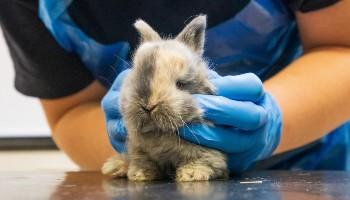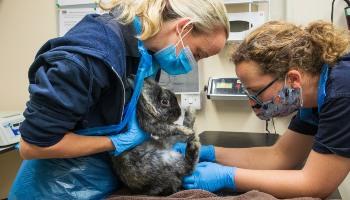What is Alabama rot?
Alabama rot, otherwise known as Cutaneous and Renal Glomerular Vasculopathy (CRGV), is a disease that affects dogs. It damages the blood vessels in the skin and kidneys, which causes visible sores on the skin and can lead to severe organ dysfunction and ultimately kidney failure.
What causes Alabama rot?
The cause of the disease is currently unknown, though research is on-going. Since December 2012, a small number of cases have been seen throughout the UK.
Most reports come from pet owners who walk their dogs in the countryside, and most cases are reported during winter and spring. Generally, cases are rare in the summer months compared to the colder months.
What are the symptoms of Alabama rot?
The following are typical signs of Alabama rot:
- Skin sores, visible swelling, red patch or skin defects not caused by a known injury. These skin lesions typically appear below the knee or elbow, and occasionally on the face or at the bottom of the chest or abdomen.
- Changes in appetite - reduced appetite, drinking more, vomiting and lethargy are signs of acute kidney injury.
Remember, the majority of visible skin lesions will not be caused by Alabama rot disease, and most cases of kidney failure will be a result of another cause.
Can I do anything to avoid Alabama rot?
While it's extremely difficult to give advice about how to avoid Alabama rot, we recommend washing off all mud following a wet and muddy walk, especially through woodland.
What should I do if my dog is showing signs of Alabama rot?
If you're concerned that your dog may be suffering, we urge that you contact your vet immediately for further advice. If it is Alabama rot, early recognition and aggressive management are likely to have the best results.
Should I be worried about my dog contracting Alabama rot?
The number of cases reported in the UK is extremely low, so there's little reason to be worried. Thousands of dogs are walked in the countryside every day, and it's important to remember that only a very small number of dogs have been affected. The threat is very low, and while there may be an environmental trigger, we can't confirm that some areas are safer than others.
You have no need to panic, but you can visit specialist vets Anderson Moore for more information if you'd like to know more. If you wish, you can contribute to furthering research at The Alabama Rot Research Fund (ARRF).




